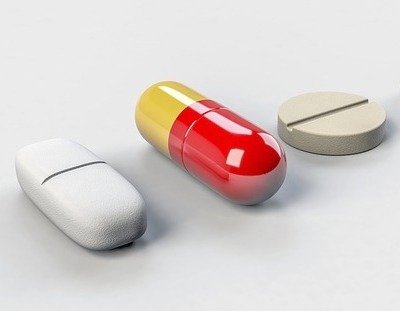Genital Herpes is a sexually transmitted disease that is caused by two kinds of viruses – herpes simplex virus type 1 (HSV-1) and herpes simplex virus type 2 (HSV-2). It is a very common sexually transmitted infection that is caused by the herpes simplex virus. It can be spread through oral, anal, or vaginal sex. Hence, sexual contact is the main way this can spread.
One out of every five women between the ages of 14 and 49 has faced genital Herpes. There isn’t any cure per se for Herpes, but medication can be taken to prevent an outbreak and lower the risk of passing it on to partners. If the body is infected, the virus can lie dormant for many years and then resurface at any time.
HSV-1 is the most common cause of the infection on the mouth and appears as sores on lips and the mouth. They are also known as fever blisters. Symptoms can be milder than that of Genital Herpes. It can spread to genitals via oral sex and cause genital Herpes.
HSV-2 is a common cause for genital Herpes and is spread through oral, anal, or vaginal sex. It can spread to the mouth via oral sex. Genital Herpes causes soreness and itching in the genital areas. Once infected, the host can be contagious. Learn more about this STD with our previous post: Understanding of Genital Herpes.
How is Genital Herpes Spread?
Sex – anal, vaginal, or oral is one way the virus or infection spreads. If you have unprotected sex with anyone who has this disease, you can get it. If you aren’t affected, then too you can get infected if you come in contact with the virus through:
- Genital secretions or saliva
- Herpes sore
- The skin on the oral or genital area depending on where the sexual partner has Herpes
The thing with Herpes is, a person may not know she/he has been infected, and you can get this infection from them. One can also get it by receiving oral sex from a person who has oral Herpes. This infection isn’t contagious in any other way. For example, you will not get the disease by touching soap, towels, silverware, or by coming in contact with bedding, swimming pools, or toilet seats.
Symptoms – Genital Herpes
Many people are not aware when they have been infected with HSV as the symptoms aren’t visible or are very mild. The symptoms can begin 2-12 days post-exposure, and they include:
- Ulcers – When a blister ruptures and bleeds or oozes pus, then it becomes an ulcer. This symptom makes it difficult to urinate for the person.
- Scabs – As ulcers heal, the skin dries and forms a crust known as scabs.
- Itching or pain – An infected person can feel tenderness and pain in the genital area until it clears.
- Small white blisters or red bumps – these signs appear a few days after an infection has occurred.
A person infected by HSV-2 can also have a few flu-like symptoms such as:
- Fever
- Headache
- Chills
- Tiredness and body ache
- Headache
- Swollen glands in the pelvic area or underarms
- Muscle pain
Symptoms of Oral Herpes
Oral Herpes doesn’t make a person too sick, and its less painful as well. Sores or fever blister form near the mouth and lips or even inside the mouth. These cold sores can last a few weeks, and then they disappear. These sores are annoying at best for adults but can be dangerous for babies.
Women can see symptoms in the cervix, vaginal area, or external genitals while men see it on the penis or scrotum. Common body areas such as moth, anus, urethra, buttocks, and thighs are affected in both men and women.
Treating Genital Herpes and Prevention
Once you get Genital Herpes, there isn’t an immediate way to treat it. It can remain dormant in the human and then reappear one day in the form of sores. There are prescription medicines to prevent transmission and also to reduce the likelihood of recurrence. A person with this can promote healing and reduce the risk of transmission by:
- Keeping sores dry and clean
- Avoid sexual contact with a different person unless fully healed
- Not touching sores
- Using a barrier as protection during sex
- Washing hands after touching the sores
When sores are present, then sexual contact must be avoided. Use of condoms does reduce the risk of infection, but as the skin around the genital sis infectious as well, this isn’t a foolproof method. Doctors usually recommend checks after having intercourse with a new partner.
When is treatment given?
Initial – When you experience sores when you have been first diagnosed with genital Herpes, then the doctor will put you on antiviral therapy to stop them from getting worse. The drugs may be given for longer if the sores don’t heal on time. After this, there are two options as follows.
Intermittent – The doctor can prescribe an antiviral drug to keep in hand in case there is a flare-up in the near future. This is known as intermittent therapy. The pills can be taken for 2-5 days when you feel the sores are coming or see them breaking out. Sores can heal, but the drugs will ensure that the symptoms are managed well.
Suppressive – If a person experiences the outbreak of sores quite often, then he/she must consider daily antiviral drugs. This is known as suppressive therapy. If a person has more than six outbreaks annually, this treatment can reduce it by 70-80%.
There is no tried and tested rule that doctors follow to decide on one method of treating Genital Herpes, but it is more on the basis of the time the breakouts occur and their severity. Daily suppressive therapy can reduce the risk of transmission to others, and antiviral drugs prevent viral shedding.
Complications
Genital Herpes can lead to certain complications such as:
- Meningitis – HSV infection leads to inflammation of the cerebrospinal fluid and membranes around the spinal cord and brain in very rare instances.
- Newborn infection – Infected mothers can expose the babies to this infection in the process of birthing. This may cause blindness, brain damage, or death of the baby.
- Bladder issues – This infection can cause the urethra to swell up and to prevent the body from releasing urine.
- Rectal inflammation – The lining of the rectum can get infected in case of gay sex.
- Other infections that are sexually transmitted – HSV increases the risk of transmitting other diseases like HIV.
-
Reducing the risk of contracting Genital Herpes
In order to avoid STDs, humans must restrain from sex. But if they are sexually active, then they must try long term monogamous relationships with an uninfected partner or use latex condoms while having sex. But beware as herpes virus can be released from areas that don’t have visible sores. If you are in a relationship with an infected person, then you will be protected from the partner, takes medication daily, and have a little restraint in terms of sex.
-
Recognizing the symptoms
Herpes has very mild symptoms, and due to this, many don’t know if they have Herpes. Sores appear on the mouth, rectal, or genital areas, which burst to form blisters and leave painful sores. This is known as an outbreak, and it may be accompanied by swollen glands, flu-like symptoms, body aches, or fever. People can have repeat outbreaks, as the virus will remain in the body.
The doctor will check for symptoms and test a sample from the sores. A blood test for herpes antibodies may be done to determine if you have an infection that can decide the further trail on treating Genital Herpes.
If a woman has had genital Herpes and then becomes pregnant, there isn’t a cause to worry, and she must inform her doctor. But if you get Herpes while you are pregnant, then it can be dangerous. It can cause early delivery or a miscarriage. If the infection is transmitted during birth, then the baby may have eye problems or brain damage. In case the woman has herpes sores during delivery, the doctor may recommend a dc-section for the baby’s safety. A pregnant woman must be very careful in terms of sex and watch out for partners who may have Herpes.
-
What happens if I don’t get treated?
Genital Herpes can accuse extremely painful sores, and if one touches them, it can be transferred to other body parts. The fluids secreted from these sores are contagious, and it can be transferred to sensitive areas such as eyes if you touch the eyes after touching the sores. One must immediately wash hands after touching the sores.
Lifestyle Tips for Treating Genital Herpes
- Wear loose well-fitting clothes to let your skin breathe
- Do not touch your sores
- Understand your trigger points and take care of them
- Use different towels for cleaning your sores and rest of your body
- Shower with warm water to relieve from pain
- Avoid using ointments and instead, take oral medications as directed by your doctor
Conclusion
There is no cure for Genital Herpes, but it can be managed with lifestyle changes, hygiene, and medication. People must be careful to ensure that the infection doesn’t spread, and they continue to live normal healthy lives.




